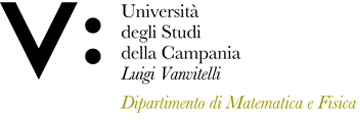Giovanni DE GREGORIO
Insegnamento di PRINCIPLES OF QUANTUM MECHANICS FOR QUANTUM COMPUTING
Corso di laurea magistrale in PHYSICS
SSD: FIS/02
CFU: 2,00
ORE PER UNITÀ DIDATTICA: 24,00
Periodo di Erogazione: Primo Semestre
Italiano
| Lingua di insegnamento | INGLESE |
| Contenuti | 1) Richiami di algebra lineare. |
| Testi di riferimento | - M. A. Nielsen and I. L. Chuang. Quantum Computation and Quantum Information. |
| Obiettivi formativi | Alla fine del corso lo studente deve: |
| Prerequisiti | Conoscenze di base di Meccanica Quantistica |
| Metodologie didattiche | Il corso è strutturato in 24 ore di lezioni frontali. È vivamente consigliato partecipare alle lezioni e interagire con l'insegnante. Il corso prevede lezioni con utilizzo della lavagna. Sarà inoltre fornito materiale didattico per ulteriori approfondimenti. |
| Metodi di valutazione | L'esame consiste in un esame orale della durata di circa un'ora, durante il quale lo studente risponde a domande specifiche sulla computazione quantistica e dimostra di aver acquisito familiarità con gli argomenti trattati nel corso. |
| Programma del corso | 1) Richiami di algebra lineare: spazi vettoriali, operatori lineari, notazione di Dirac, prodotto tensore. |
English
| Teaching language | English |
| Contents | 1) Review of linear algebra. |
| Textbook and course materials | - M. A. Nielsen and I. L. Chuang. Quantum Computation and Quantum Information. |
| Course objectives | At the end of the course the student must: |
| Prerequisites | Basic knowledge of quantum mechanics. |
| Teaching methods | The course is structured in 24 hours of frontal lectures. It is highly recommended to attend the classes, and interact with the teacher. The course includes classes using the blackboard. Educational material will also be provided for further study after the classes. |
| Evaluation methods | The exam consists of an oral exam lasting about one hour in which the |
| Course Syllabus | 1) Review of linear algebra: vector spaces, linear operators, Dirac notation, the tensor product. |








